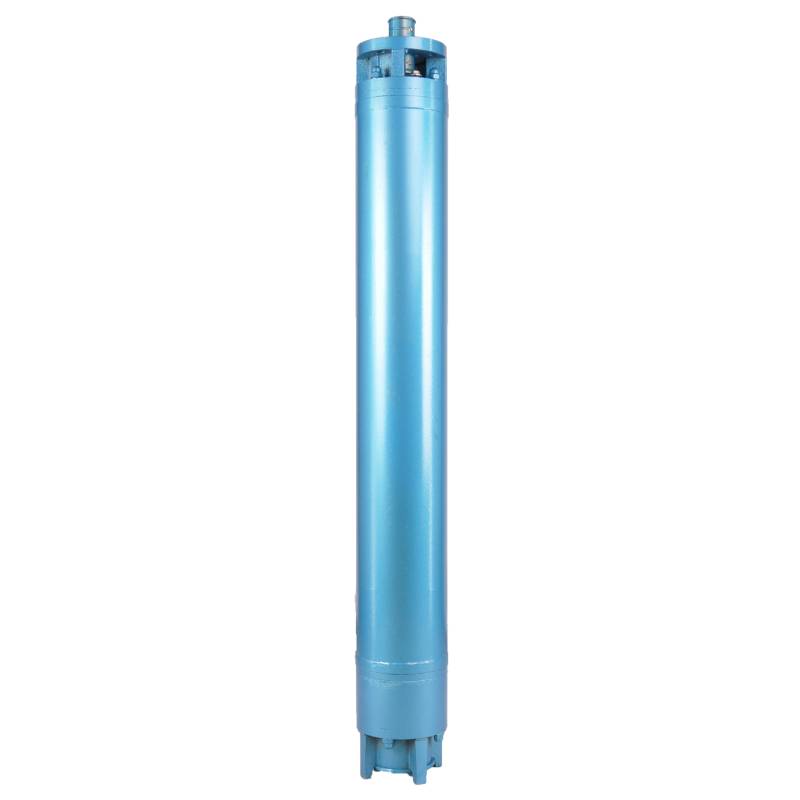dec. . 24, 2024 14:00 Back to list
1hp water pump submersible
Understanding 1 HP Submersible Water Pumps
Submersible water pumps have become increasingly popular for both residential and industrial applications. One common type is the 1 horsepower (1 HP) submersible water pump, which strikes a balance between efficiency and power, making it suitable for a variety of water management tasks. This article will explore the functionality, applications, benefits, and considerations of using a 1 HP submersible water pump.
What is a Submersible Water Pump?
A submersible water pump is designed to be completely submerged in water. Unlike other types of water pumps that operate above water, submersible pumps work underwater to push water to the surface. Their design minimizes the risk of cavitation (the formation of vapor bubbles) and maximizes the pressure at which water can be moved. The motor of a submersible pump is hermetically sealed in a waterproof casing that prevents water from entering and damaging the components.
Power and Efficiency of 1 HP Pumps
The term 1 HP refers to the pump's power output, equating to approximately 746 watts. This level of power is ideal for lifting water from wells, managing stormwater, dewatering construction sites, and other tasks where moderate flow rates are needed. Depending on the model and design, a 1 HP submersible water pump can typically move anywhere from 30 to 100 gallons per minute, depending on the head height (the vertical distance the pump must push the water).
Being submersible, these pumps also tend to be more efficient than their suction counterparts. They can operate at greater depths without losing efficiency, making them particularly well-suited for deep wells and basements prone to flooding.
Applications of 1 HP Submersible Water Pumps
1 HP submersible water pumps find use in a range of applications
1. Residential Use Homeowners often utilize these pumps for draining basements, swimming pools, or flooded yards. They are also used for watering gardens and lawns from wells or ponds.
2. Agriculture Farmers rely on 1 HP pumps for irrigation systems, transferring water from canals and lakes to their fields, ensuring crops receive adequate moisture without the need for expensive systems.
3. Construction Sites In construction, water accumulation can delay projects. These pumps are typically used for dewatering tasks to keep foundations dry and safe for building.
4. Industrial Applications Many industries utilize submersible pumps for waste management, including sewage and wastewater.
5. Aquaculture In fish farming, maintaining proper water levels is crucial, making submersible pumps valuable for circulating and aerating water.
1hp water pump submersible

Benefits of 1 HP Submersible Water Pumps
Several advantages make the 1 HP submersible pump an excellent choice for various applications
- Space-Saving Design These pumps do not require large piping systems, making them easier to install in confined spaces
.- Durability Designed for underwater use, submersible pumps typically feature corrosion-resistant materials, enhancing their longevity.
- Less Noise Operating underwater, these pumps tend to be quieter than standard above-ground pumps.
- Self-Priming Submersible pumps are self-priming because they are submerged, eliminating the need for manual priming.
Considerations When Choosing a 1 HP Submersible Pump
While 1 HP submersible water pumps offer numerous advantages, some considerations should be taken into account
- Water Source Depth Assess the depth of the water source to ensure that the pump has adequate power to move the water to the surface.
- Flow Rate Requirements Determine the required flow rate for your application to select a pump that meets your needs effectively.
- Material Quality Choose a pump made from high-quality materials, especially if it will be exposed to corrosive environments or debris.
- Maintenance Needs Like any equipment, regular maintenance is crucial for ensuring optimal performance and longevity.
Conclusion
A 1 HP submersible water pump is a versatile and effective solution for various water management needs. By understanding its applications, benefits, and considerations, users can make informed decisions to better manage their water needs, whether for residential, industrial, or agricultural purposes. With the right pump, achieving efficient water movement can be simplified, ensuring effective and reliable access to this essential resource.
-
Submersible Water Pump: The Efficient 'Power Pioneer' of the Underwater World
NewsJul.01,2025
-
Submersible Pond Pump: The Hidden Guardian of Water Landscape Ecology
NewsJul.01,2025
-
Stainless Well Pump: A Reliable and Durable Pumping Main Force
NewsJul.01,2025
-
Stainless Steel Submersible Pump: An Efficient and Versatile Tool for Underwater Operations
NewsJul.01,2025
-
Deep Well Submersible Pump: An Efficient 'Sucker' of Groundwater Sources
NewsJul.01,2025
-
Deep Water Well Pump: An Efficient 'Sucker' of Groundwater Sources
NewsJul.01,2025
-
 Submersible Water Pump: The Efficient 'Power Pioneer' of the Underwater WorldIn the field of hydraulic equipment, the Submersible Water Pump has become the core equipment for underwater operations and water resource transportation due to its unique design and excellent performance.Detail
Submersible Water Pump: The Efficient 'Power Pioneer' of the Underwater WorldIn the field of hydraulic equipment, the Submersible Water Pump has become the core equipment for underwater operations and water resource transportation due to its unique design and excellent performance.Detail -
 Submersible Pond Pump: The Hidden Guardian of Water Landscape EcologyIn courtyard landscapes, ecological ponds, and even small-scale water conservancy projects, there is a silent yet indispensable equipment - the Submersible Pond Pump.Detail
Submersible Pond Pump: The Hidden Guardian of Water Landscape EcologyIn courtyard landscapes, ecological ponds, and even small-scale water conservancy projects, there is a silent yet indispensable equipment - the Submersible Pond Pump.Detail -
 Stainless Well Pump: A Reliable and Durable Pumping Main ForceIn the field of water resource transportation, Stainless Well Pump has become the core equipment for various pumping scenarios with its excellent performance and reliable quality.Detail
Stainless Well Pump: A Reliable and Durable Pumping Main ForceIn the field of water resource transportation, Stainless Well Pump has become the core equipment for various pumping scenarios with its excellent performance and reliable quality.Detail
